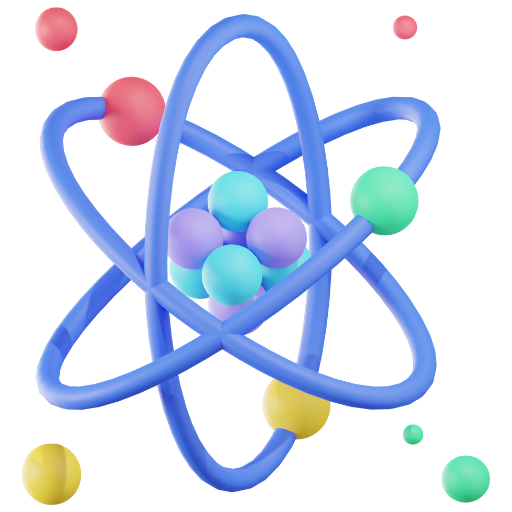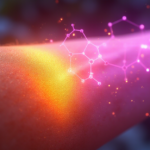Especially among people trying to prevent impulsive behaviors driven by social media and other addictive pursuits, dopamine fasting has become a trendy fad in recent years. Dr. Cameron Sepah first proposed this idea to control our frequency of engaging in reward-seeking behaviors. Based on personal experiences of social media misuse, this essay investigates how dopamine functions in the brain, refutes widespread beliefs about dopamine fasting, and offers understanding of its pragmatic uses for improved mental clarity and lower impulse actions.
Table of Contents
- The Rise of Social Media Addiction and Dopamine Fasting
- What is Dopamine Fasting and How Does It Work?
- Can Dopamine Fasting Help Curb Addictive Behaviors?
The Rise of Social Media Addiction and Dopamine Fasting

Social media now permeates every aspect of our life in the digital era. Alerts, updates, and engaging material abound in all directions, trying to grab our attention. But this constant barrage of stimulus may be quite addictive, and many people battle social media addiction. This begs the issue: how would dopamine fasting help to control this addiction?
Central to human motivation, learning, and memory, dopamine is a chemical in our brains that sets off sensations of pleasure and reward. Activities that make us happy—like eating great cuisine, seeing a gripping movie, or browsing social media—cause a dopamine rush in us. Highly addictive positive feedback loops can cause us to repeatedly seek out these kinds of activities.
Understanding Dopamine Fasting and Its Role in Addiction Management
A relatively recent idea, dopamine fasting is reducing our exposure to events that cause a dopamine rush. It’s more about lowering the frequency and strength of dopamine surges than about eradicating dopamine totally. Here the idea of dopamine regulation finds application. Dopamine regulation is the brain’s capacity to modulate dopamine release and absorption. Limiting our exposure to dopamine-inducing activities helps our brains reset their sensitivity to dopamine, therefore reducing our inclination for quick pleasure and increasing our awareness of the inherent benefits of daily life.
For a designated period, dopamine fasting can entail avoiding social media, video games, even some forms of entertainment. This helps your brain to find equilibrium and grow in a better relationship with these pursuits. Reducing the frequency of dopamine spikes will help us to break out from the cycle of continual stimulation and learn to value the more straightforward pleasures of life.
Practical Tips for Implementing Dopamine Fasting
Reducing dopamine cravings and fostering more self-control can both be greatly aided by dopamine fasting. It gives you greater control over your time and attention by helping you break free from the pattern of constant browsing and thoughtless interaction with social media. Designating particular times during the day where you refrain from all dopamine-inducing activities is one approach to apply dopamine fasting. This could entail restricting your entertainment intake, breaking from social media during specific hours, or even avoiding some foods that cause a significant dopamine reaction.
Recall that dopamine fasting is not about living without all pleasure. It’s about striking a mix that suits you. You may discover that by deliberately choosing to participate in activities that don’t cause too high dopamine release, such spending time in nature, having meaningful talks, or following artistic interests, you feel more deeply fulfilled and satisfied. Not a strict diet, dopamine fasting is a proactive method to control our connection with dopamine. It’s about knowing how dopamine and brain function operate and applying that information to lead a more harmonic and contented existence.
What is Dopamine Fasting and How Does It Work?

Have you ever felt as though, even in trying to rest, you are continuously checking your phone and surfing social media? You are not unique. Many of us battle impulsive behavior brought on by the nonstop stimulus in our digital age. This is where dopamine fasting comes in – a method that can enable us to find more satisfying ways to spend our time and take charge over our digital habits.
Understanding Dopamine and Its Role in Our Digital Habits
Dopamine fasting is more about controlling our frequency of indulging in activities that cause dopamine spikes than it is about totally eradicating dopamine, a chemical vital in our brain’s reward system. whether we feel pleasure—that is, whether we savor a great meal, see a gripping movie, or, yes, surf through social media—our brains produce dopamine. Memory, learning, and even drive depend on this reward mechanism. However, continuous stimulation from these pursuits can cause an addictive loop that leaves us yearning ever more.
Here dopamine fasting comes in handy. It helps our brain’s dopamine sensitivity be adjusted. We can escape this cycle of continual stimulation and learn to value the smaller pleasures of life by purposefully reducing our exposure to events that cause dopamine surges. See it as a reset button for the pleasure mechanism in your brain.
How to Practice Dopamine Fasting
Dopamine fasting is a predetermined period of abstaining from activities that cause too high dopamine release. Social networking, video games, streaming services, and even some kinds of entertainment might all fit here. You might concentrate on things that don’t cause too strong dopamine release during this period, such spending time in nature, having meaningful talks, or following artistic interests. Once you’ve given your brain a vacation from continual stimulus, you might be astonished at how much more rewarding these pursuits become.
For instance, I used to find myself checking social media nonstop even when I was bored or just trying to unwress. Starting dopamine fasting, I became aware of how much time I was squandering on activities that weren’t really rewarding. I began devoting more time to activities I actually loved—reading, writing, and hanging around with loved ones. I discovered I was more present, attentive, and happy with my life.
If you want to practice dopamine fasting, you might start by scheduling a time restriction for your social media usage, then progressively cut the time you spend on these pursuits. You can also look for other activities that really make you happy, including creative hobbies, important talks, or time in nature. Once you give your brain a vacation from continual stimulus, you may be amazed by how much more rewarding these hobbies become. By means of dopamine fasting, one might learn to value the small pleasures of life and escape the cycle of impulsive behavior.
Can Dopamine Fasting Help Curb Addictive Behaviors?

Have you ever felt as though, although you knew you should, you couldn’t put your phone down? Alternatively perhaps you have found yourself continually surfing social media even when you feel exhausted and unproductive. These are all typical indicators of impulsive behaviors motivated by our reward system in our brains. But supposing there was a means to rewire your brain for a more balanced and contented life and take control over these impulses? Here’s where dopamine fasting finds use.
Reducing your exposure to activities that cause an overproduction of dopamine, a neurotransmitter vital in dopamine regulation, is the basis of dopamine fasting. These pursuits can cover social networking, video games, streaming services, and even some kinds of entertainment. Limiting these pleasure impulses will help your brain reinterpret its sensitivity to them. This can help you to be more sensitive to the inherent benefits of daily life and less prone to want quick fulfillment. For those suffering with social media addiction, overeating, shopping sprees, or gambling, dopamine fasting can especially help.
Understanding How Dopamine Fasting Affects the Brain
Dopamine fasting helps your brain adjust to its natural dopamine levels. This can help one to value the more basic pleasures of life. You may consider it as letting your brain relax from the continuous stimulus of dopamine-inducing activities and help it to rebalance. Improved dopamine control and a more balanced reward system can follow from this.
Benefits of Dopamine Fasting
Your mental and emotional health can benefit from dopamine fasting in many ways. Among the most obvious advantages are better concentration and focus. Reducing your exposure to dopamine-inducing activities helps your brain to grow more tuned to the present moment and less vulnerable to distractions. This can help one concentrate on chores, finish assignments, and participate in thorough research. Raised productivity is another advantage. You can find yourself growing more driven to reach your objectives when you’re not always looking for outside benefits. Furthermore resulting from dopamine fasting can be increased well-being and satisfaction. Reducing your reliance on dopamine-inducing activities will help you to find greater gratification from the small joys of life.
Practical Tips for Implementing Dopamine Fasting
Dopamine fasting does not entail totally eradicating all pleasure. It’s about striking a mix that suits you. You might begin by planning and following a social media use schedule. This will enable you to stop mindless scrolling and take charge of your time. You may also experiment substituting mindfulness-promoting activities like yoga or meditation for social media usage. These techniques can help you lessen your need on outside rewards and develop inner tranquility. Try to go a complete day without of entertainment or social media. This can be a great approach to reset the reward system in your brain and see your connection with technology from another angle.
Potential Risks and Limitations of Dopamine Fasting
Although dopamine fasting can help many people, it’s crucial to know its possible drawbacks and restrictions. Particularly for those with a past of addiction, one worries that it can cause withdrawal symptoms. Among these could be difficulties focusing, anxiousness, and irritation. Another worry is that it can cause a rebound effect, in which case your dopamine-inducing behaviors become even more sought after following a period of abstention. One should approach dopamine fasting carefully and pay attention to their body.
A Call to Action
Not a strict diet, dopamine fasting is a proactive method to control your interaction with your brain’s reward system. It’s about realizing how your brain reacts to pleasure and applying that information to lead a more balanced and contented existence. The secret is to be patient as retraining the brain’s reward system takes time and to discover a rhythm fit for you. Try dopamine fasting, and notice how it affects your life. Once you give your brain a vacation from continuous stimulus, you may be amazed by how much more satisfying these pursuits become.
Dopamine fasting should not replace expert medical guidance. If you have certain medical issues, kindly see your doctor before attempting it.











